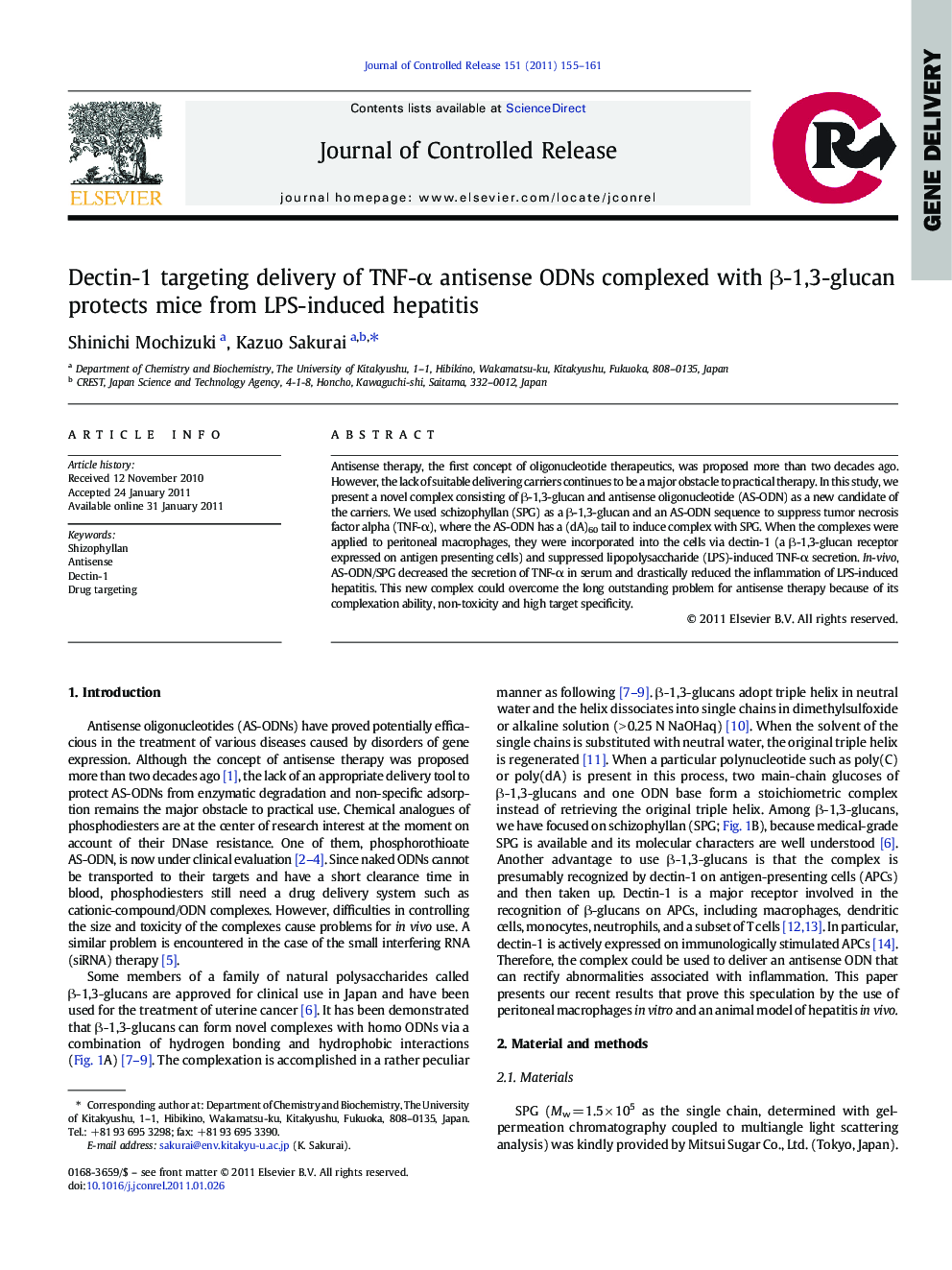| Article ID | Journal | Published Year | Pages | File Type |
|---|---|---|---|---|
| 1425203 | Journal of Controlled Release | 2011 | 7 Pages |
Antisense therapy, the first concept of oligonucleotide therapeutics, was proposed more than two decades ago. However, the lack of suitable delivering carriers continues to be a major obstacle to practical therapy. In this study, we present a novel complex consisting of β-1,3-glucan and antisense oligonucleotide (AS-ODN) as a new candidate of the carriers. We used schizophyllan (SPG) as a β-1,3-glucan and an AS-ODN sequence to suppress tumor necrosis factor alpha (TNF-α), where the AS-ODN has a (dA)60 tail to induce complex with SPG. When the complexes were applied to peritoneal macrophages, they were incorporated into the cells via dectin-1 (a β-1,3-glucan receptor expressed on antigen presenting cells) and suppressed lipopolysaccharide (LPS)-induced TNF-α secretion. In-vivo, AS-ODN/SPG decreased the secretion of TNF-α in serum and drastically reduced the inflammation of LPS-induced hepatitis. This new complex could overcome the long outstanding problem for antisense therapy because of its complexation ability, non-toxicity and high target specificity.
Graphical AbstractTreatment with the complex consisting of antisense oligonucleotide with dA60 and SPG protected mice from lipopolysaccharide/d-galactosamine-induced hepatitis.Figure optionsDownload full-size imageDownload as PowerPoint slide
